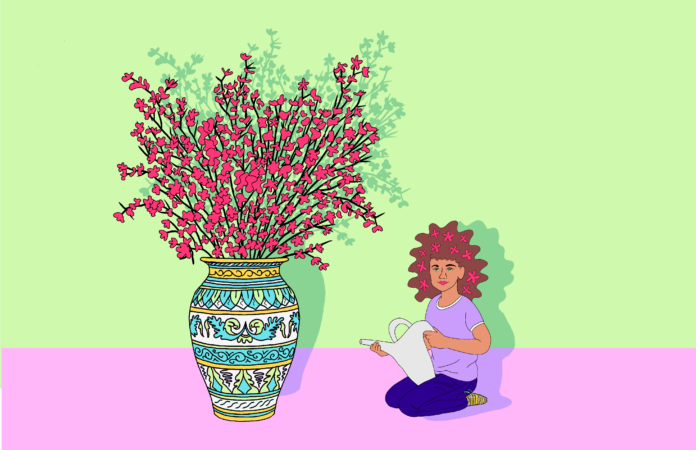Take care of yourself like you would for your favorite houseplant
During quarantine, many of us took up the hobby of collecting house plants. Now, caring for our plants as if they were our children has become a part of our daily routine. We put them in spacious pots and provide them with the necessities to grow––good soil, water, light and love. Most of the time, however, we fail to build these nourishing habits for ourselves.
We wouldn’t dare put our plants in unsuitable environments or go without watering them. But we find it easy to neglect our own needs and health, often denying our bodies water, healthy food, sleep, sunlight, fresh air, time to relax and love.
For some reason, taking care of our plants and others is easier than engaging in our own self-care. We find it therapeutic to water our plants each day but avoid drinking an adequate amount of water ourselves. Similarly, we jump at a chance to prepare a meal for a friend, but tend to satisfy ourselves with take-out for dinner.
Eventually, our ability to keep giving to others will run out if we don’t take care of ourselves first––you can’t pour from an empty cup. Hence, the beautiful mantra: “You gotta nourish to flourish.” In order to flourish in all aspects of our lives, we have to nourish not just our bodies, but our minds too. This may include hydrating and eating but it also includes setting boundaries, loving ourselves and saying “no” occasionally.
As an introvert, I have canceled plans many times out of sheer social anxiety––instantly feeling guilty for setting such a boundary. Society pressures us to always say yes when presented with an opportunity, especially a social one. But it should be acceptable to opt out of activities we won’t enjoy or that add stress to our already hectic schedules.
We also live in a society that makes us feel selfish for putting ourselves first. At a young age we are taught to be polite and selfless. Now as young adults many of us have taken this idea to the extreme––sacrificing our well-being for the sake of others.
We need to allow ourselves to say “no” without feeling guilty. Additionally, we need to accept “no” from others without questioning their reasons. Those that love us will understand the boundaries we set the same way we will accept theirs.
This does not mean you should start leaving your friends on read when they ask for help. Rather, it means you should regularly check in and recharge yourself so that when an opportunity to help someone comes up, you can do it without suffering.
It’s possible to overly care for our plants (or others) when we over water them or leave them in the sun too long. In order to keep them healthy, we have to find a balance. Likewise, we need to recognise when we’ve given too much attention to others and learn when to give more to ourselves.
Flourishing in life means reaching our fullest potential––true self-actualization. Per Maslow’s hierarchy of needs, we can’t expect to reach full self-actualization by ignoring our most basic needs. It may be a long and hard journey, but it’s a necessary one.
Written by: Kacey Cain –– klcain@ucdavis.edu




